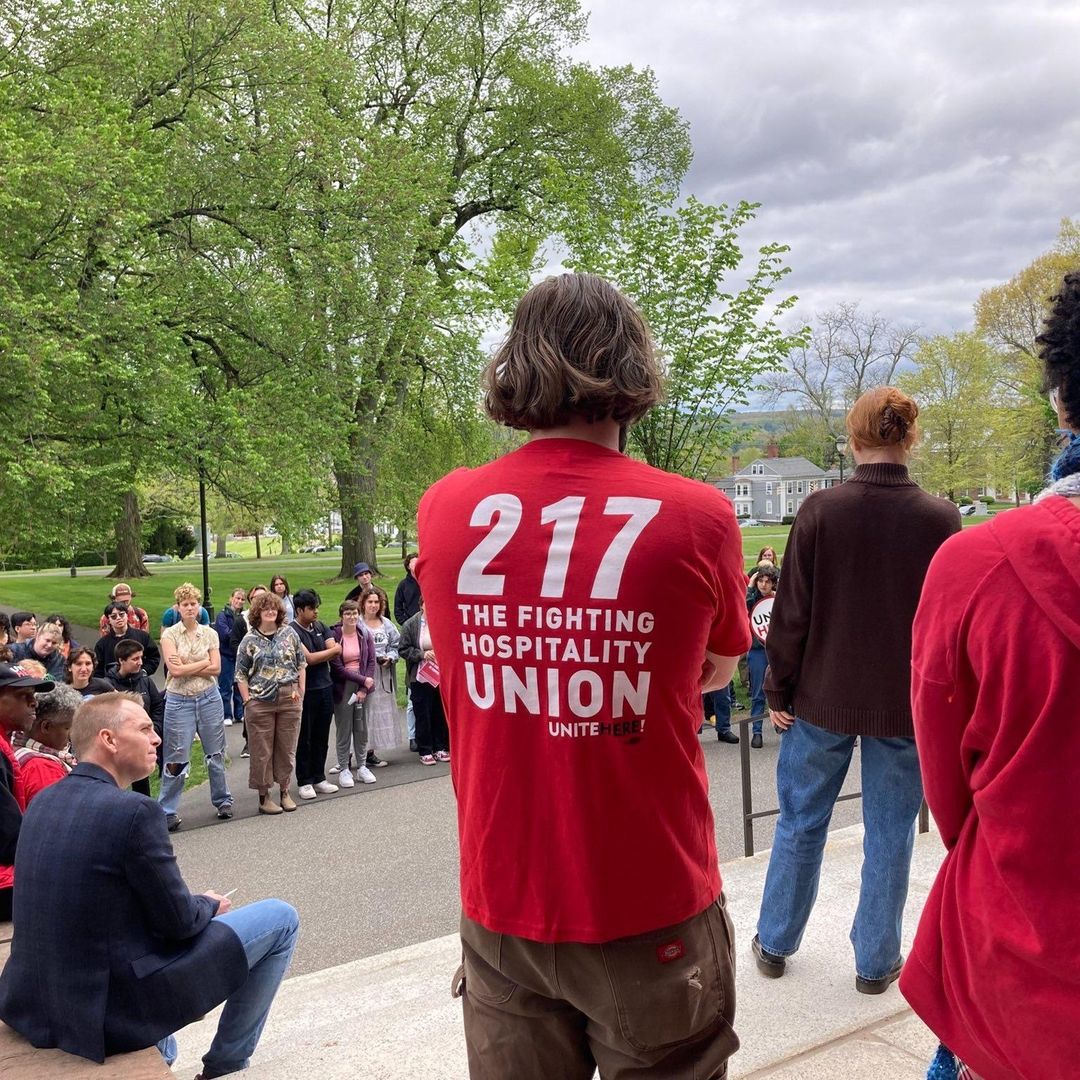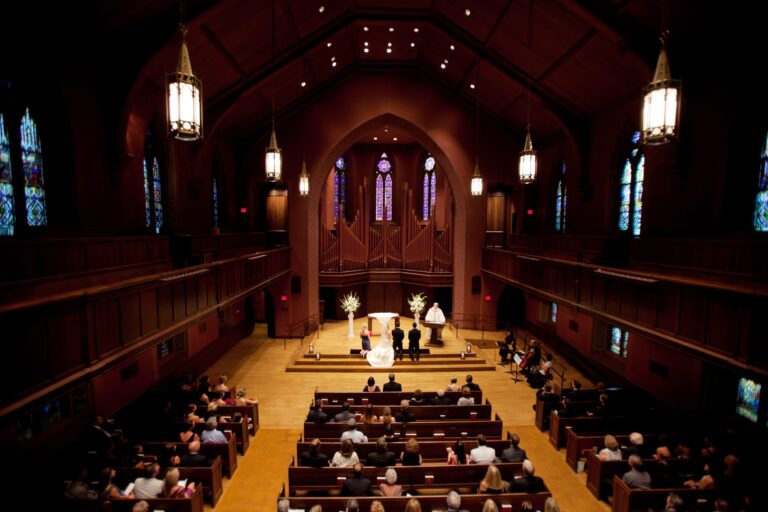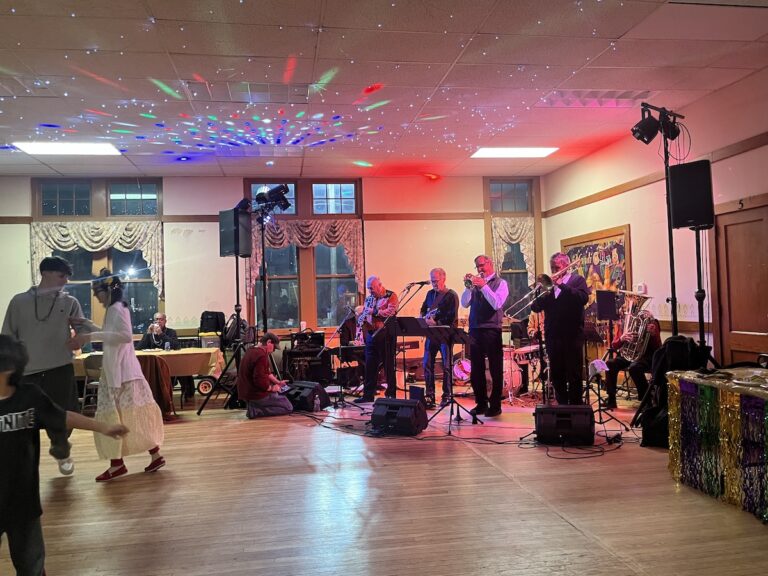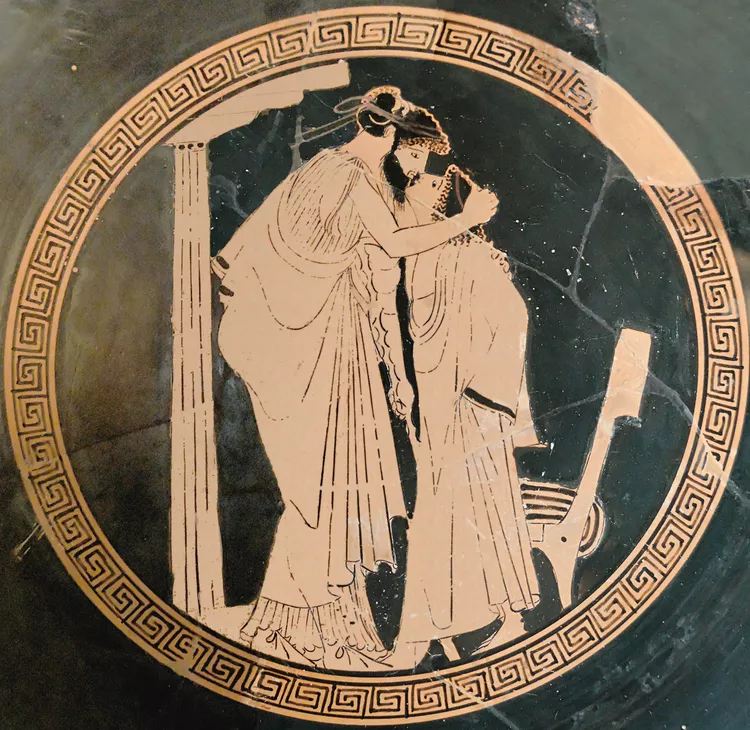Inside Unionization: An In-Depth Look at Wesleyan Dining Workers United

Over the past month, the University has witnessed the launch of two student dining worker unionization campaigns under the umbrella of a single union. Known as Wesleyan Dining Workers United (WesDWU), the union now represents a large majority of the estimated 250 student dining workers employed at various Bon Appétit dining locations, as well as at Red & Black Cafe (RBC) and WesWings (Swings).
According to union representatives at UNITE HERE Local 217, a labor union which represents the full-time unionized Bon Appétit workers, roughly 230 student workers have joined WesDWU. From demonstrations to letters to the administration, student workers across Wesleyan’s cafés, dining halls, and restaurants have banded together in pursuit of fundamental labor rights, including higher wages and better working conditions. However, since the union’s first rally on Tuesday, April 4, several key developments have been made within each of the campaigns, sparking widespread confusion among the student body.
As the union continues its organizing efforts, The Argus has spoken extensively with students, staff, and management in order to gain an understanding of what exactly is happening, and importantly, what is at stake for all of the parties involved. Below, The Argus has answered all the questions you may have about Wesleyan’s latest student labor union.
What does the process of unionizing entail?
According to the National Labor Relations Board (NLRB), a union may be formed in one of two ways. Firstly, at least 30% of workers must sign up via union cards or a petition affirming their desire to be represented by a union. If this quota is met, a union election will then be conducted by the NLRB. That said, an election may not be necessary if the employer voluntarily recognizes the union. In the case that the employer agrees to do so, the union becomes the workers’ legal representative for the purposes of collective bargaining. As stipulated by the 1935 National Labor Relations Act, a federal law that grants employees the right to form or join unions, collective bargaining allows employees to negotiate collectively with their employer through a designated representative.
“The union and employer must bargain in good faith about wages, hours, and other terms and conditions of employment until they agree on a labor contract or reach a stand-off or ‘impasse,’” the National Labor Relations Board (NLRB) states on their website.
Are there two separate unions?
While there are currently two separate unionization efforts, Wesleyan Dining Workers United is a single union that represents student employees of both the Bon Appétit Management Company as well as Red & Black Cafe and WesWings. At Wesleyan, student dining workers are employed by different employers and therefore two separate unionization campaigns were required.
How did the union come about?
In 1982, full-time workers at Bon Appétit Management Company formed Wesleyan’s first dining workers’ union. Since its creation, contracts for union workers have been negotiated every five years, with union stewards in place to address conflicts between staff and management. As of last June and following a negotiation process between the union’s bargaining committee and the University, full-time workers at Bon Appétit receive an average wage of $31 per hour. $1.50 raises are also guaranteed each year. According to UNITE HERE Local 217, Yale University is the only college in the country to offer its food service workers higher wages than what the full-time Bon Appétit workers receive.
“Relationships between us and the Bon Appétit managers are very good,” Theodore Briggs, a current union steward at Bon Appétit, said. “We constantly have fluid conversations, and we see them on a daily basis. And because of the rights we have, we have some say in how things are done.”
In April of this year, organizers worked with UNITE HERE Local 217 to launch a unionization campaign for student employees of Bon Appétit Management Company and Swings and RBC. On April 4, student employees of Bon Appétit announced their unionization campaign at a rally outside Usdan University Center. According to the union’s representatives, just 20 minutes before the rally commenced, lawyers from Compass (Bon Appétit’s parent company) contacted the union and agreed to a card check. A majority of Bon Appétit student workers have signed cards, and the union is currently in the process of electing a bargaining committee.
The Swings and RBC unionization campaign began with an all-student meeting held on Tuesday, April 4. The following day, a group of student workers walked into WesWings and announced their desire to unionize. Although over 70% of the student workers at Swings and RBC signed up in favor of the union, WesDWU did not initially file for an election. The owners of Swings and RBC, Edward Thorndike ’89 and Karen Polascik, were given until April 10 to voluntarily recognize the union or face subsequent boycotts.
The days that followed, however, were mired with confusion. On April 6, one day after the call to unionize, RBC and Swings workers gathered in front of Swings to picket during the dinner rush. It is important to note that union members are permitted to strike or organize picketing activities provided that these events meet certain conditions: they must have a lawful object and purpose, must respect any no-strike provisions of an employment contract, and must not lead to serious instances of employee misconduct. For example, union members who threaten violence against non-striking employees may be subject to disciplinary action by their employers.
UNITE HERE Local 217 maintains that full-time staff at Swings and RBC were informed of the unionization campaign prior to its April 5 announcement. On April 7, a group of nine full-time employees at RBC and Swings signed and released a public statement claiming that they were completely unaware of student’s intentions to unionize. In the Instagram post, the employees also expressed their opposition to the unionization campaign.
“As full time employees of WesWings and Red & Black Cafe, we would like to clear the air on our position on the unionizing of both locations,” the employees wrote. “We were completely blindsided that students were interested in organizing. We were shocked to hear that a process was started that did not include us.”
The letter was signed by Amy Marcellino, Marida Heng-Clark, Issac Barrera, Job Vazquez, John Fountain, Zech Gadwah, Stephanie Andrasik, Michael Mitchell, and Richard Kmietek.
“From the beginning, I was under the impression that it was an entire staff thing,” a Swings student worker who spoke on the condition of anonymity said. “A lot of the full-time staff expressed that they felt pretty blindsided. I think it was kind of abrupt, which I think hurt the cause in general.”
Since this period of controversy, the union has held regular meetings in order to provide clarifications and updates. Several students that The Argus spoke to said that these meetings have helped them to better understand the process of unionizing and have allowed them to connect with those who could help advance their cause.
“I initially took like a step back from the union but then I had no information about what was going on,” Swings worker Eva Weintraub ’24 said. “Getting the support from the full-time Bon App workers was super important and I wouldn’t have had that if I didn’t go to the meetings.”
What specific grievances have been voiced by WesWings and Red & Black student workers?
Student workers have expressed a number of concerns pertaining to working conditions and wages at Swings and RBC. Though many of these grievances have been voiced in the wake of the union’s launch, several members of WesDWU claim that these issues have existed long before the unionization campaign began. From inequities in wages, to shift cuts, to poor communication among students and managers, WesDWU is endeavoring to reform the treatment of all dining workers on campus.
Currently, student workers at WesWings and Red & Black Cafe are paid $14.10 per hour. This is just above the minimum wage in Connecticut, which is currently $14 per hour. In comparison, student workers at Bon Appétit are paid $17 per hour. Meanwhile, unionized full-time dining workers on campus receive an average hourly wage of $31, more than double that of student workers at RBC and Swings. Not only have WesDWU argued that these wages are grossly unfair, they have also stressed that these disparities threaten the union standard for the rest of Wesleyan’s food service workers.
Jobs at WesWings and Red & Black Cafe are not covered by work-study subsidies in the same way that positions at Bon Appétit are, meaning that the U.S. government does not finance a portion of student wages at both establishments. This subsidy can range anywhere from 25% to 75% of wages, according to the Federal Student Aid Office. The Argus could not verify the exact subsidy that Wesleyan receives.
According to Thorndike, students receive a raise every September, provided that they have worked for at least one semester the previous year.
“For example in the spring of 2021 our starting wage was $12.10/hr,” Thorndike wrote in an email to The Argus. “In September 2021, those student employees received a 25 cent raise plus $1 increase for the min wage increase to $13.35/hr. This past September 2022, they received another 15 cent raise plus $1 min wage increase to $14.50/hr.”
However, several students that The Argus spoke to expressed that they had not received these raises as promised.
“People were promised raises and not given them,” an anonymous student worker at WesWings said. “A lot of the student employees train other student employees. And I’ve been told they were going to get raises for doing that and they haven’t been getting them.”
“The only time we’ve ever been given a raise was when Connecticut minimum wage moved on,” Rory Dolan ’23, a worker at WesWings, said.
In the fall semester of 2022, several shifts were cut at WesWings, but no one was fired. Nevertheless, many students have had their hours significantly reduced and have found it difficult to discuss their concerns with management.
This was the case for Dolan, who has worked at Swings since the 2021-22 school year.
“Coming into this year I was promised three shifts,” Dolan said. “I was told I’d be working Monday lunch, Tuesday dinner, and Thursday dinner. I come into the year, I try to show up for Monday lunch, and I just get told, ‘you don’t have the shift anymore.’ I wasn’t really given an explanation as to why.”
Soon after, Dolan experienced additional shift cuts, altering the amount of money he was able to count on per week.
“Without warning, they slashed a ton of our hours,” Dolan said. “I got a text one day saying to come in at 12 [p.m.] on Tuesdays and at 6 [p.m.] on Fridays. Normally I would’ve been coming in at 11 [a.m.] on Tuesdays and 5 [p.m.] on Friday. I was given no explanation.”
Dolan reached out to his boss, Karen Polascik, in an attempt to receive a more detailed explanation and regain his lost hours.
“I was texting Karen…I was like, I really need this job,” Dolan said. “I need these hours. I already had my Monday shift cut at the beginning of this year.”
Dolan was told that his shifts would not be reinstated and that these cuts had been made with the needs of the business in mind. Polascik reiterated that other students had faced similar cuts or lost their shifts entirely. Dolan was advised to cover other people’s shifts as a way to gain additional hours.
After hearing from newly hired employees that they had not had their shifts cut, Dolan approached Thorndike in his office and sought further explanation. Dolan elaborated on this interaction.
“And [Thorndike] goes like, ‘You want to know the honest truth? You’re one of the worst employees at WesWings. You’re always talking at the register…your handwriting is illegible,’” Dolan said.
When asked about these shift cuts, Thorndike emphasized that WesWings and Red & Black Cafe do not have a last hired, first fired policy, and that new hires were made because there were open shifts that no one wanted to work.
“We do our best to accommodate everyone,” Thorndike wrote. “People were not targeted, shifts were. We did our best to address everyone’s needs and spread the cuts evenly. We have a system in place for students to find coverage for each other that provides ample opportunities to more than make up for any lost hours.”
At WesWings and Red & Black Cafe, workers are required to purchase at least one uniform for $14. Workers do not get free meals but receive a 50% discount while working and a 20% discount while off the clock. They are also permitted to snack on menu items throughout their shift free of charge, according to Thorndike. Workers have expressed that these policies effectively lower their wages because they create unavoidable expenses with each shift. Since dining hours are uniform across campus’s various dining locations, those who work full shifts are also not able to get a meal at different establishments because most of these locations have already closed.
According to Thorndike, workers at Swings receive a great deal of benefits, many of which are not offered in other positions at the University.
“We believe our overall food policy of both free food and eating during the shift and discounts at all other times is quite generous compared to other jobs both on and off campus,” Thorndike wrote.
Several students that The Argus spoke with also expressed that the management at WesWings and Red & Black Cafe is often hard to track down and communicate with, as exemplified by the challenges Dolan encountered.
Thorndike emphasized that he and Polascik are present at WesWings daily and make frequent trips to Red & Black.
“Our phone numbers and emails are well known and we are always readily available to speak to employees, customers or anyone who needs our attention,” Thorndike wrote.
Moreover, since the announcement of the union, some students have claimed that while on shift, they have been taken aside by management and questioned about their involvement with the union.
“I think Karen and Ed have identified who they think is part of the union,” Dolan said.
On April 12, UNITE HERE Local 217 filed for an election since more than 30% of student workers had filled out union cards. Twelve days later, management at RBC and Swings submitted what is known as the employer’s statement of position. This must contain two things: when they want the election to take place and who they think the bargaining unit is, in other words, who they think should be eligible to vote in the election. Not only did both employers request that the union election take place in September, they also argued that student workers did not have the right to vote. While casual workers—students who work less than four hours a week—are legally barred from working in the vote, union representatives from UNITE HERE Local 217 claim that bosses at both establishments submitted a list of “excluded voters,” all of which were student workers who worked more than four hours per week.
A few days after their statement was released, Weintraub had a shift at Swings. Hoping to understand the rationale for excluding students from the election, she and another student worker approached Polascik.
“She just asked [Polascik], ‘We were wondering why you think that students shouldn’t be able to vote in this election?’” Weintraub said. “She pretty much just threw a lot of lies at us about eligibility requirements when we knew the requirements.”
According to Weintraub, Polascik proceeded to call her lawyer shortly after this exchange.
“[Polascik] came to us and said ‘I was just on the phone with my lawyer and I can’t talk to you about this,’ something [that] we knew was a lie,” Weintraub said.
Thorndike and Polascik did not comment on these specific allegations but have refuted claims that they have engaged in illegal union busting activities.
How has management at WesWings and Red & Black Cafe proceeded to respond to the unionization effort?
After a boycott against WesWings and Red & Black Cafe was announced on April 6, Thorndike and Polascik called for an all-staff meeting to address the contention. The union responded that a mandatory meeting was not legal, at which point it was made voluntary. Ultimately, the meeting never happened; however, one was held without management present.
On May 1, Swings and Red & Black Cafe then reached an agreement with UNITE HERE Local 217 and the NLRB on the terms of an election. The agreement stipulates that both students and full-time workers will be able to vote in the election. Those who work less than four hours per week will not be able to vote as per NLRB rules. Additionally, employees hired after May 1 will not be eligible to vote.
Despite the progress that has been made, WesDWU is calling upon the University to require Red & Black and Swings to commit to a fast and neutral process without the fear or delay of an anti-union campaign.
How has the University reacted to both of these unionization drives?
According to Wesleyan’s official employment code for subcontractors, the University acknowledges and supports their employees’ right to unionize in a way that is free from harassment and intimidation.
That said, the University has not issued any public statements regarding WesDWU. Since the union was launched, two letters, one written by Bon Appétit workers and the other by Swings and Red & Black workers, have been delivered to President Michael Roth ’78’s office. On April 28, approximately 20 student workers at RBC and Swings as well as union representatives attempted to deliver a letter to the president’s office. According to an Instagram post published by the union, President Roth did not let the union into his office. Public Safety was also called to the scene.
Students, union organizers, and full-time Bon Appétit staff have all publicly urged the University to step in and exert pressure on WesWings and Red & Black management. On Friday, May 5, a rally outside University offices garnered 80 supporters, including State Senator Matt Lesser and Local 217 Vice President Stephan Alderman.
How will the union affect full-time workers at RBC and Swings?
The NLRB protects against what is called regressive bargaining, a situation in which an employer attempts to take away benefits or protections that were established in a previous contract.
NLRB protections stipulate that employers must inform union representatives of any proposed changes and negotiate in good faith over the potential impacts of these changes. Employers are also forbidden from making any regressive changes in order to punish employees for engaging in union activity.
The only situation in which regressive changes may be permitted is if the employer can show that the regressive changes are necessary to maintain economic viability, and that other options have been explored.
“People who vote no on the union, if they’re full-time staff, whatever, they are still at the table,” Frances Ostensen ’24, a student worker at Red & Black Cafe, said.
In other words, full-time workers and student workers who wish for things to stay the same are not obligated to rally for change.
As bargaining committees begin to take shape and eligible union members look ahead to their election in September, what exactly will transpire over the next few months remains unclear. However, it is more than apparent that students on this campus remain as committed as ever to advocating for both themselves and their community.
This is a developing story. The Argus will continue to monitor developments within WesDWU.
Tiah Shepherd can be reached at tsheperd@wesleyan.edu.
Leo Bader can be reached at lbader@wesleyan.edu.








Leave a Reply